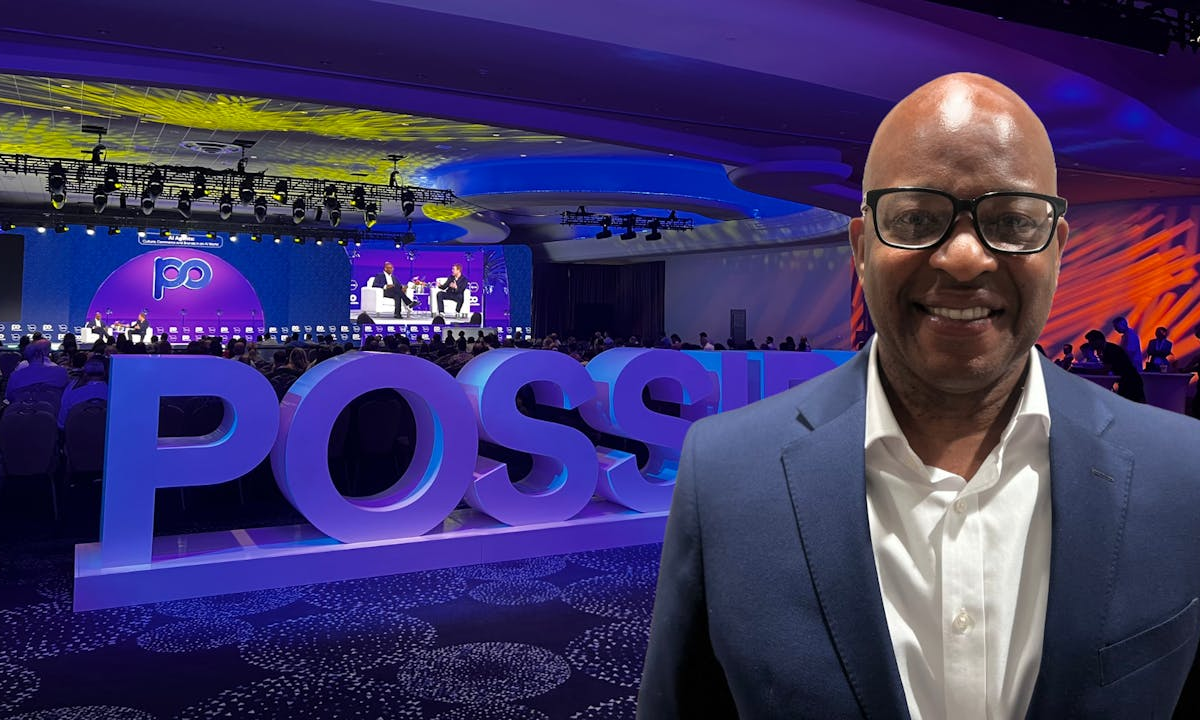At Possible in Miami, Visa’s CMO revealed a sweeping set of AI-driven innovations aimed at reshaping how we shop, sell, and settle. But in a world of agent-to-agent transactions, he tells The Drum, it’s culture – not code – that will separate the winners from the rest.
Visa has just fired the starting gun on the next era of AI-driven commerce. As Possible in Miami wound down the payments giant unveiled a slate of new products — including Visa Pay for mobile wallets, Visa Accept for micro sellers, and a programmable money platform powered by stablecoins – all designed to let autonomous agents shop, settle, and transact across the globe. But in an exclusive sit-down with The Drum ahead of the launch, Visa CMO Frank Cooper III made one thing clear: while the tools are impressive, it’s the cultural intelligence behind them that will define who wins.
“Culture shapes what we buy, how we buy, and increasingly, who buys on our behalf,” he told us. “And that’s changing fast.”
Fast is the right word. Cooper – part futurist, part cultural strategist – believes we’re standing at the edge of a new era in marketing. An era powered by AI agents that don’t just recommend products but make autonomous decisions, transact, and even negotiate with other bots. The marketer’s job? Keep brands human in a world run by machines.
Want to go deeper? Ask The Drum
The AI revolution isn’t coming. It’s here.
While much of the industry is still talking about AI, Visa is already putting it to work. Just hours after our interview, the company launched three major product innovations – each designed to meet the AI age head-on.
One of them, Visa Pay, enables any participating mobile wallet to tap into Visa’s global merchant network. “There are billions of people using mobile wallets that don’t work outside their ecosystems,” Cooper said. “Visa Pay removes that wall. You activate it in your wallet, and now you can tap, click, or scan anywhere Visa is accepted – no new card, no enrollment.”
For micro sellers, Visa Accept flips the model – turning smartphones into card readers with a few clicks. “There are 350 million micro sellers out there who can’t accept cards today. This gives them that ability instantly, using just their phone.”
The company also announced moves into stablecoins and programmable money, with banks like BBVA already minting their own digital euros on Visa’s new Tokenized Asset Platform.
But Cooper is quick to point out: this isn’t just about product. It’s about trust.
“In a world of agent-to-agent commerce, marketing’s role will be profound,” he said. “Yes, it will help explain functionality. But more importantly, it signals whether a brand understands – and cares about – the people it serves.”
From sneakerheads to Swifties: AI is remapping identity
For Cooper, AI’s greatest potential isn’t content generation – it’s insights.
“Marketers used to rely on demographics. Age, income, location – they were proxies for behavior. But that world is gone,” he said. “Today, one person might be a sneakerhead, a gamer, a Swiftie, and a startup investor – all before lunch. AI helps us see those identities clearly, and in real time.”
That granularity, he says, reshapes how brands segment and act. “You’re no longer looking for ‘lemon-heads’ to sell lemon-lime soda to. You’re looking at how communities form, what they value, what their rituals are. AI makes that visible – but it’s still up to humans to make the judgment calls.”
The vision? AI as a co-pilot that accelerates insight but doesn’t replace intuition. “I’m excited about where this goes. But only if marketers stay curious and don’t get lazy.”
Marketing’s renaissance moment
Despite his role at one of the world’s largest payments companies, Cooper sees himself as an “accidental marketer.” His roots are in music – from BuzzTone to Def Jam – where he learned how culture and commerce intermingle.
“Music taught me to understand what moves people,” he said. “Visa might be a tech company at heart, but people still want connection, community, physical proximity. Even imperfection. That’s where marketing earns its keep.”
He likens the current moment to the resurgence of vinyl. “We spent years trying to strip out the noise. Then people decided the noise was the good part. The imperfection made it feel real. Brands today need to bring that realness back.”
And that’s why, even as AI agents take on more transactional work, Cooper believes marketers must remain the custodians of brand values – and the big ideas that animate them.
“If agents are deciding what to buy, who’s programming those agents? If they’re trained only on past behavior, where does surprise come from? Where does joy come from?” he asked. “That’s our job. To make sure the algorithms don’t erase what makes us human.”
The clock is ticking
So what’s next?
“I don’t know exactly where this leads,” Cooper admitted. “But I do know that every month, something that once seemed impossible becomes reality.”
His advice to marketers?
“Jump in. If you haven’t started investing in AI, it might already be too late. The current is moving. Fast.”
And as Visa positions itself at the forefront of AI commerce – launching tools that touch both ends of the transaction – Cooper is focused on the space in between: the emotional, cultural, human glue that holds it all together.
Because in a world of bots, it turns out humanity might be your strongest differentiator.
Suggested newsletters for you





